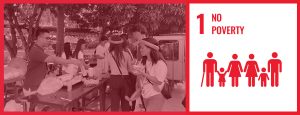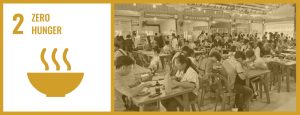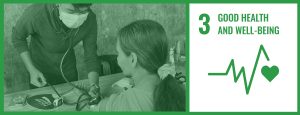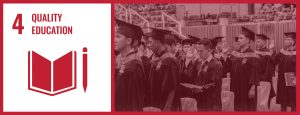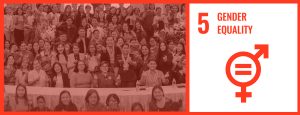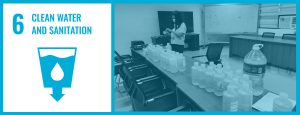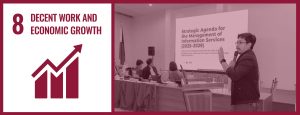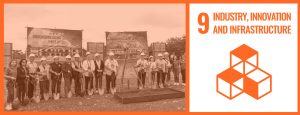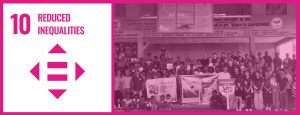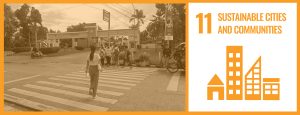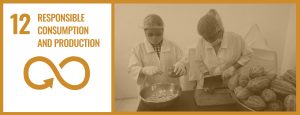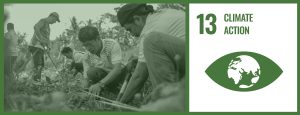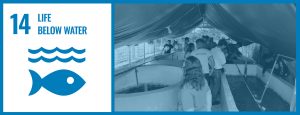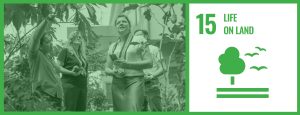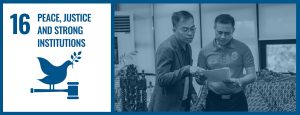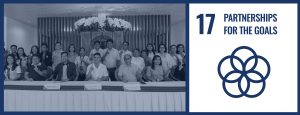2024 Reports | SDG 2 – Zero Hunger

As an agricultural and research-oriented state university strategically located in the Cagayan Valley—the food basket of Northern Philippines—Isabela State University (ISU) recognizes its vital role in contributing to Sustainable Development Goal 2: Zero Hunger. Guided by its vision of becoming a leading university in the ASEAN region, ISU acknowledges that eradicating hunger is both a global challenge and a moral imperative closely tied to its educational, research, and social mission.
ISU’s contribution to SDG 2 is reflected in its strong academic foundation. The University continues to produce graduates in agriculture, aquaculture, and related disciplines who are competent, socially responsible, and mindful of the challenges surrounding food security and sustainable agriculture. Its curricula integrate scientific principles, local knowledge, and practical field experience, equipping students with the skills and values needed to promote resilient and inclusive food systems within their communities.
Building on this foundation, programs under SDG 2 encompass a growing range of initiatives—from providing direct access to nutritious and affordable meals within ISU campuses, to fostering innovations in food processing and technology transfer through the Food Innovation Center, and implementing community-based agricultural programs through the Institute of Agricultural Technology. Together, these efforts demonstrate the University’s continuing commitment to transform knowledge into practical action, innovation into shared opportunities, and compassion into meaningful service for the community.
Through its campuses, research centers, and community programs, ISU integrates SDG 2 principles into instruction, research, and extension. The University continuously seeks to strengthen food security, promote nutrition awareness, and champion sustainable agricultural practices that benefit both campus populations and rural communities. While ISU recognizes that the full realization of this SDG remains a continuing pursuit, its initiatives mark concrete and meaningful steps toward a more food-secure and sustainable future.
STUDENT HUNGER
Ensuring Food Access and Combating Student Food Insecurity and Hunger
Isabela State University (ISU) remains committed to ensuring that every student has access to nutritious, safe, and affordable food as part of its broader effort to promote well-being and support the achievement of Zero Hunger. To address food insecurity within its campuses, the University launched the Food Bank and Feeding Program under the SMART FIC (Sustainable Management of Agriculture Resource-Based Technologies) Project, implemented through the ISU Food Innovation Center in Cauayan Campus. The program follows a food bank model that provides healthy and balanced meals to financially challenged students and campus personnel, while also promoting nutrition education and sustainable food practices.
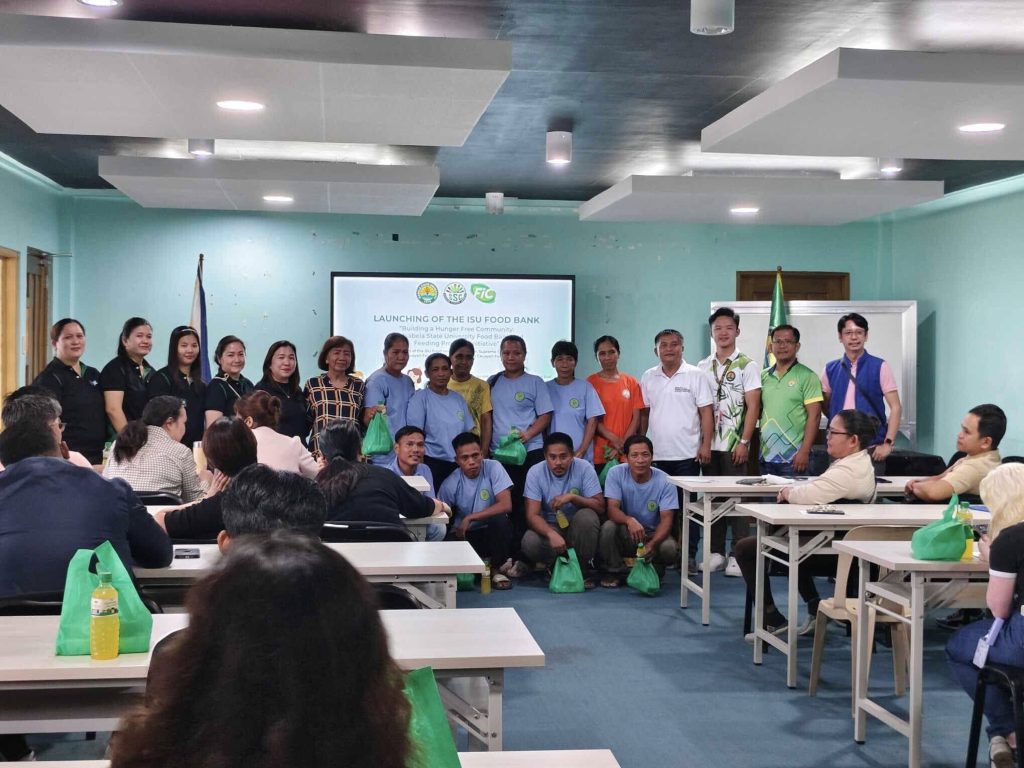
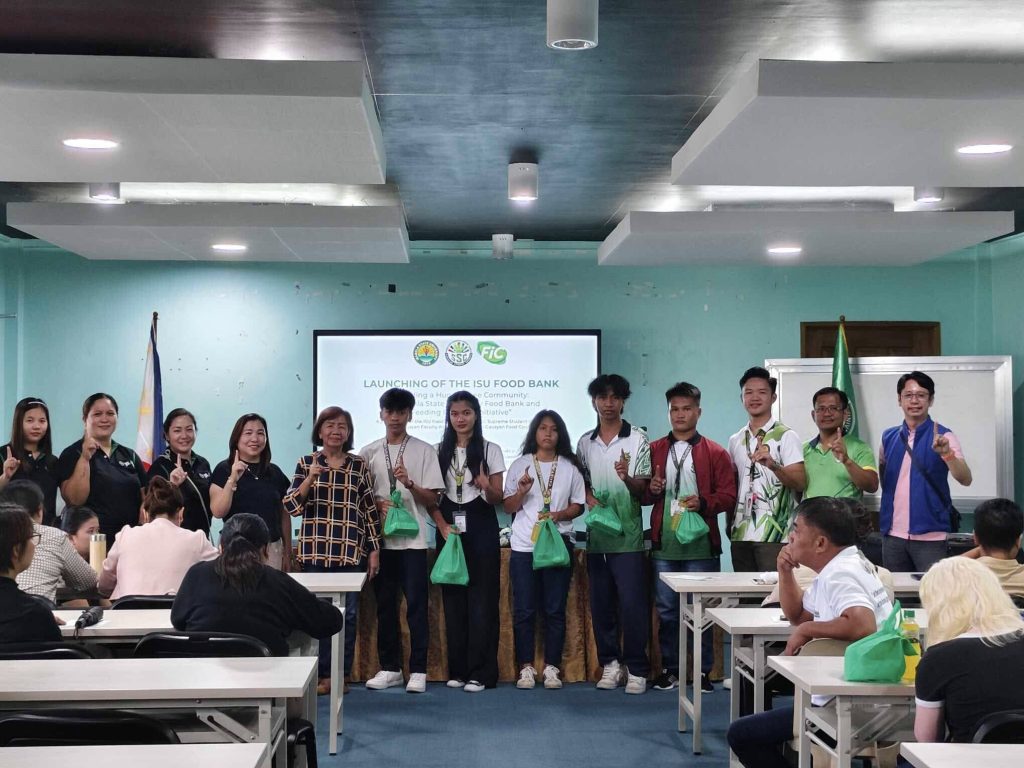
The initiative encourages community participation by involving students, faculty, and staff in preparing and distributing meals, fostering shared responsibility and social awareness. It likewise supports local producers by utilizing ingredients and technologies developed through the Food Innovation Center, thereby linking research and innovation with social impact.
Students Hunger Interventions
The Isabela State University (ISU) recognizes that hunger and food insecurity can significantly affect the academic performance and overall well-being of students and personnel. To address this, the University implements programs and initiatives aimed at preventing or alleviating hunger within its community. Among these is the innovative “Eat, Sip, and Read” program of the University Library at ISU–Echague Campus, which provides free coffee and bread to students in a comfortable and conducive learning environment.
This initiative transforms the library into more than just a space for study—it becomes a center for nourishment, relaxation, and social connection, where students can recharge both mentally and physically. By easing the daily food expenses of learners, the program helps alleviate one of the common financial burdens faced by college students, allowing them to focus more on their academic goals rather than their immediate needs.
Beyond its practical benefits, “Eat, Sip, and Read” embodies ISU’s broader commitment to inclusivity, compassion, and student welfare. It reflects the University’s proactive approach in supporting Sustainable Development Goal 2: Zero Hunger, by ensuring that every student has equitable access to opportunities that foster learning and well-being. This simple yet impactful initiative demonstrates how ISU integrates social responsibility into its educational mission, nurturing not only academic excellence but also a culture of care and community support.
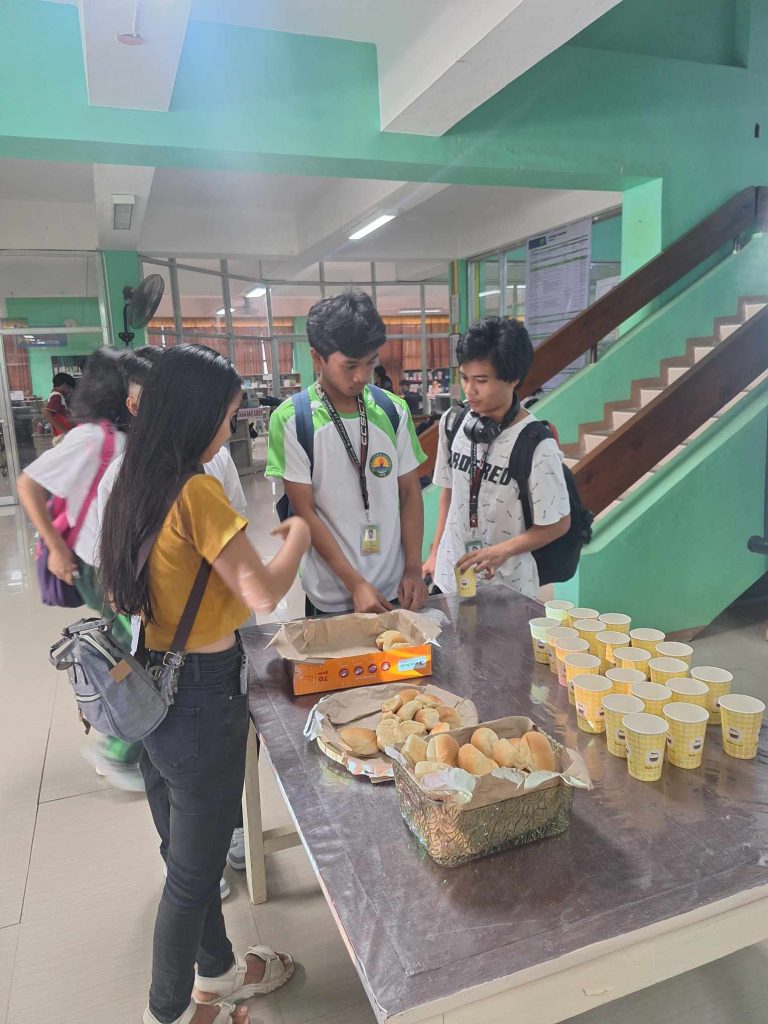
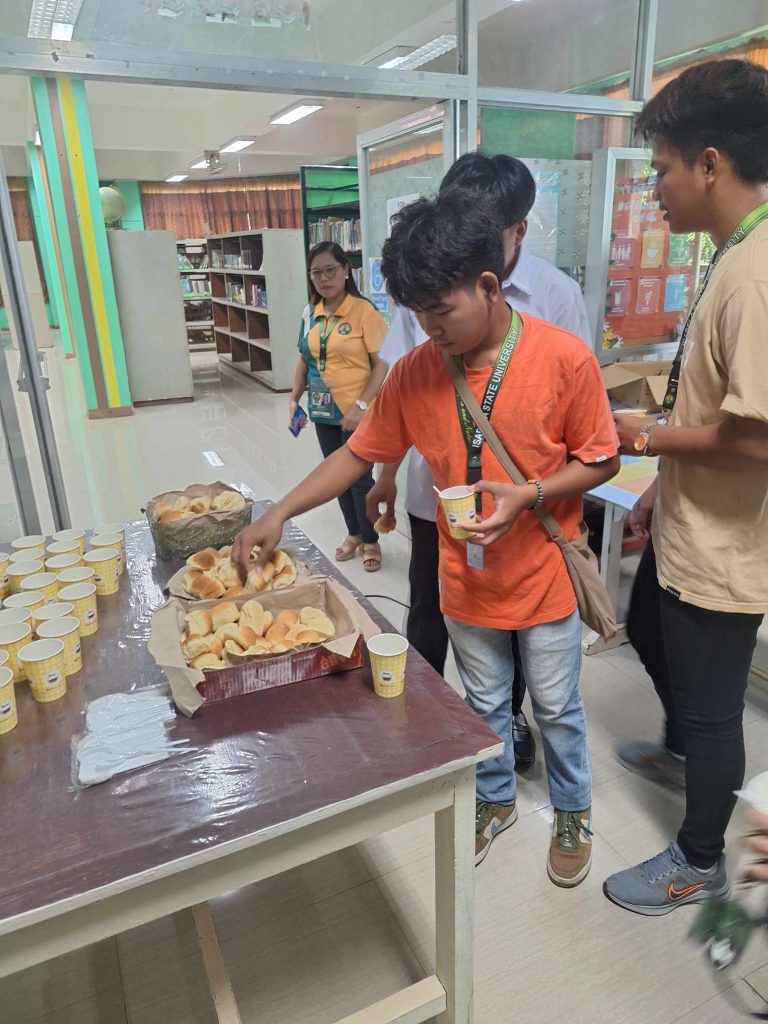
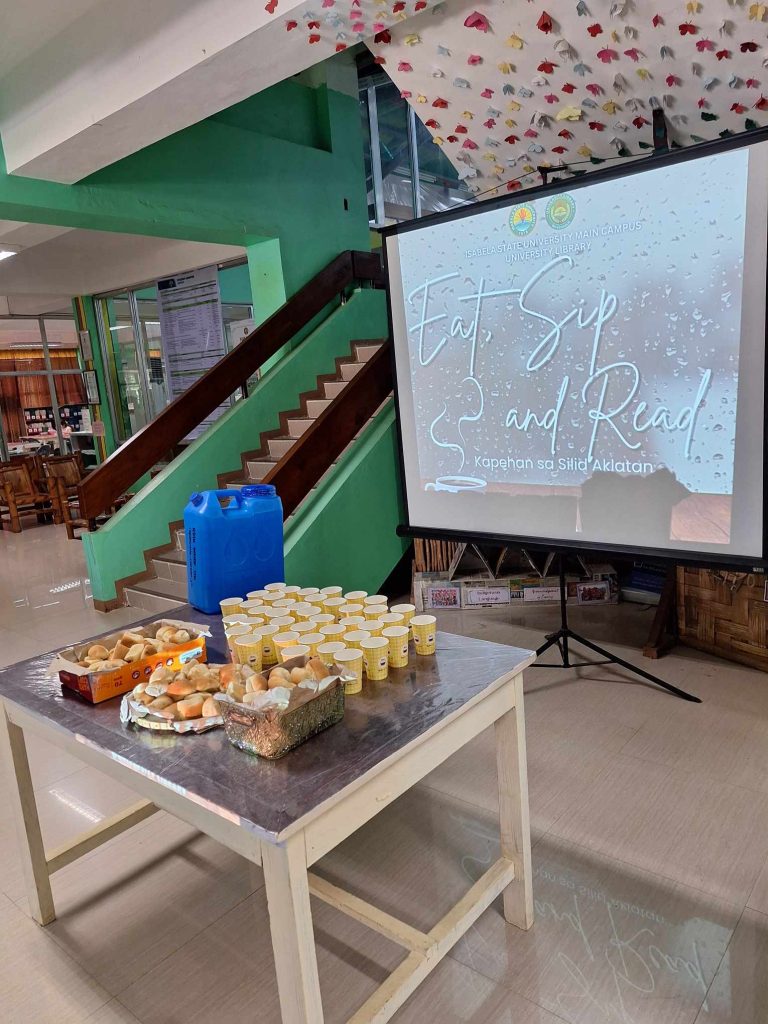
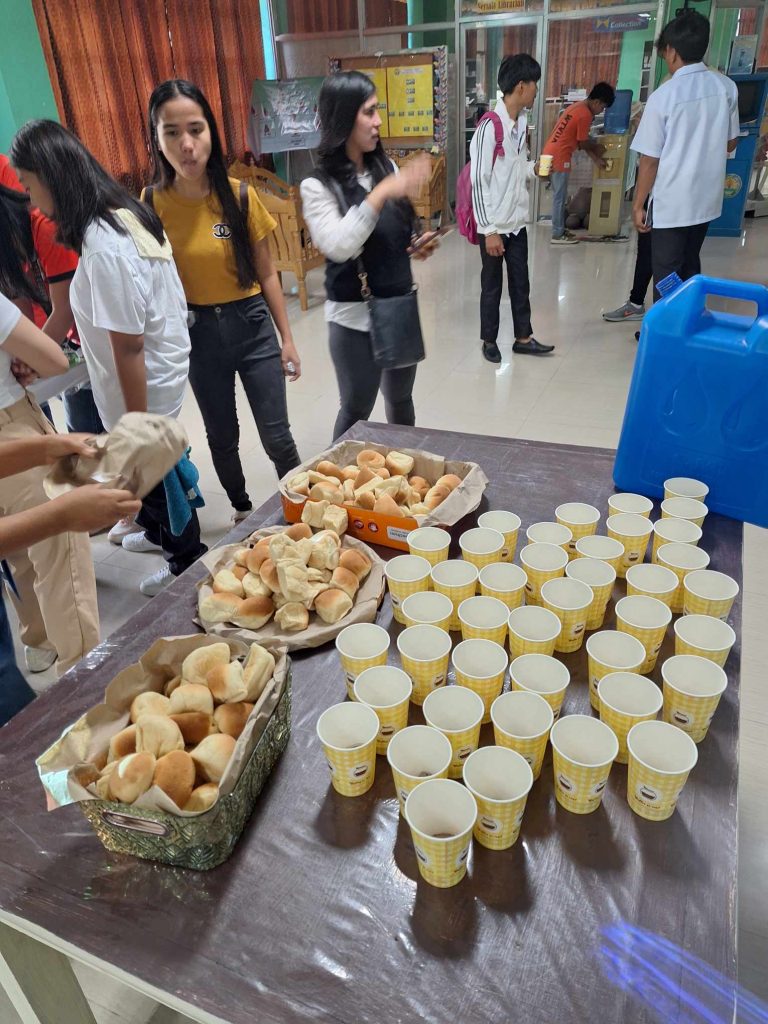
Sustainable, Healthy and Affordable Food Choices on Campus for Students and Staff
The Isabela State University (ISU) prioritizes fresh, locally grown vegetables and providing sustainable food choices on campus. The various canteens and food stalls embody ISU’s commitment to promoting healthy lifestyles and environmental responsibility within the university community. This commitment aligns with the University’s mission to ensure equitable access to sustainable and healthy food choices for all students and staff. Through the integration of plant-based meals like chopsuey and pinakbet, the canteen ensures that vegetarian-friendly options are not only available but also accessible to everyone, regardless of budget.
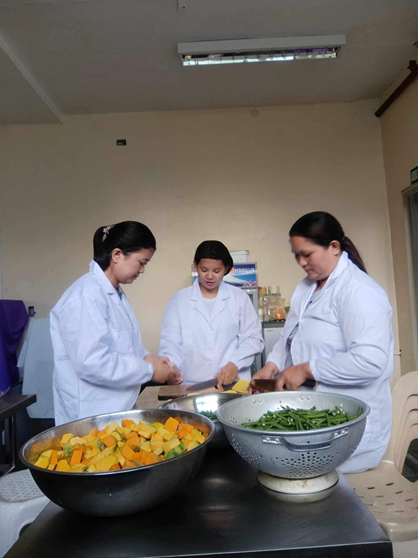
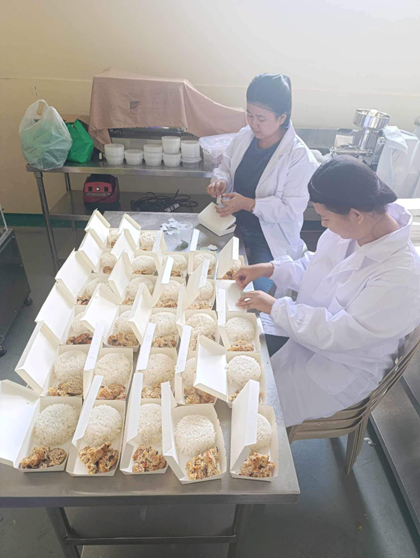
Additionally, ISU maintains affordable and health-conscious campus canteens, such as those at ISU Cauayan Campus, where meals are priced between ₱55 and ₱60 (which amounts to approximately $0.94 and $1.02, respectively), and include rice, vegetables, and meat options. In line with promoting inclusivity in food access, the University is enhancing the availability of plant-based and vegan-friendly meals through dishes such as chopsuey, pinakbet, and other vegetable-based selections made from locally sourced produce. These measures demonstrate ISU’s continuing commitment to creating a food environment that is accessible, nutritious, and responsive to the diverse dietary needs of its students and staff, while promoting sustainability and community well-being.
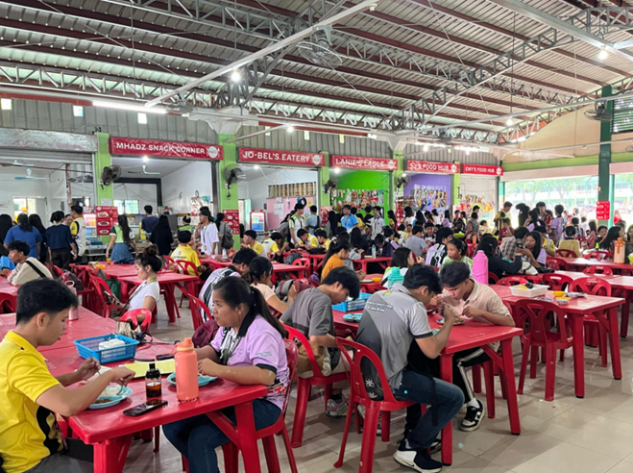

PROPORTION OF GRADUATES IN AGRICULTURE AND AQUACULTURE INCLUDING SUSTAINABILITY ASPECTS
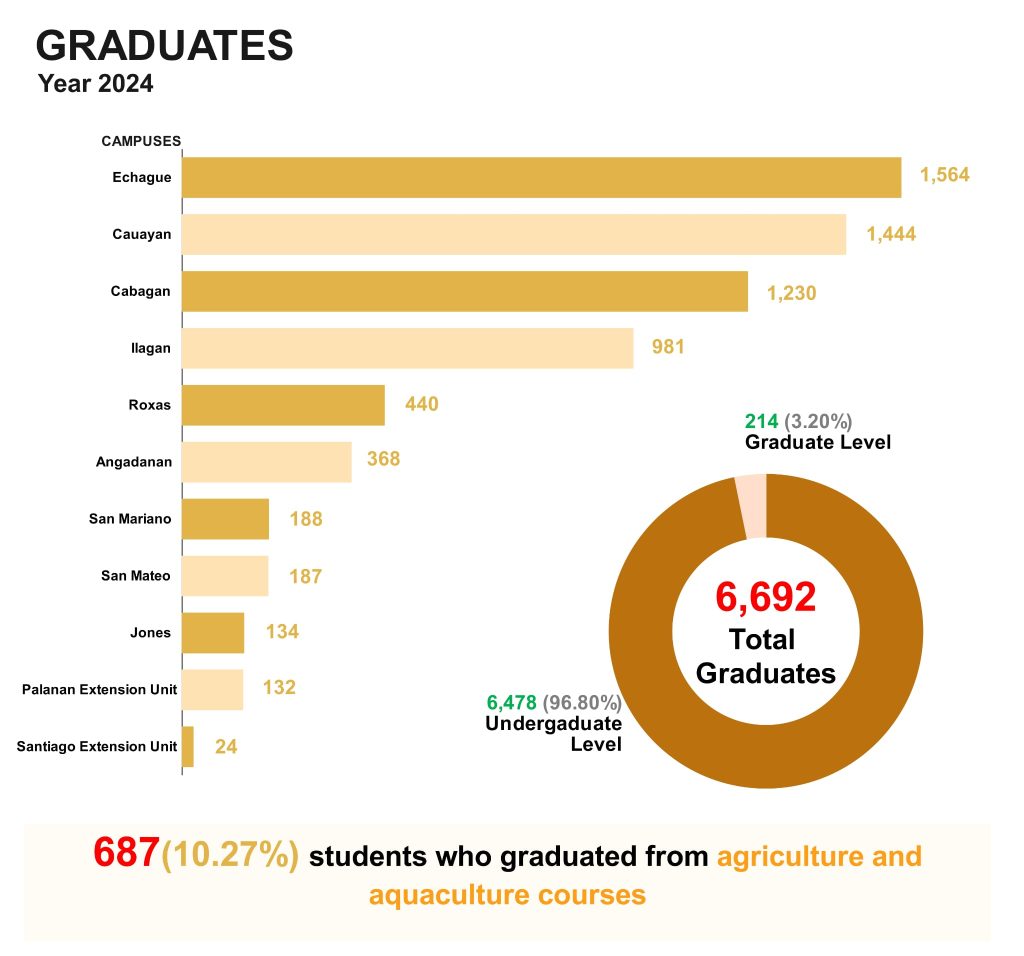
NATIONAL HUNGER
Access to Food Security Knowledge
The Institute of Agricultural Technology (IAT) at Isabela State University (ISU) Cauayan campus runs a robust community-extension program designed to empower local communities, foster self-sufficiency, and enrich livelihoods. Central to this initiative is the Adopt-A-Barangay Program, which engages multidisciplinary experts to work with selected barangays through need assessments, capacity-building, collaborative projects, and active participation of local stakeholders.
Their approach also emphasizes support for local government units through training, technical assistance, and demonstration projects to strengthen extension service delivery.
The program aligns with the United Nations Sustainable Development Goals (SDGs), especially SDG 2 (Zero Hunger), by promoting sustainable agriculture and food security through training and livelihood projects.
Overall, ISU’s IAT extension work demonstrates a meaningful commitment to rural development, gender and development mainstreaming, and community empowerment — showing how a higher-education institution can act as a catalyst for regional progress and sustainable change.
Access to Events for Local Farmers and Food Producers
The Isabela State University Food Innovation Center (ISU FIC) reaffirmed its dedication to empowering local entrepreneurs and promoting sustainable food production through the Technology Transfer and Food Safety Training Seminar held on September 13, 2024, at the ISU Cauayan Campus. The event gathered participants from Green Ladies Inc., PIGLAI-KALIPI, and representatives from the Department of Social Welfare and Development (DSWD) and nearby municipalities such as Sta. Maria, Luna, Cabatuan, Benito Soliven, and Cauayan City. It served as a vital platform for knowledge sharing, linking small entrepreneurs and food producers with ISU experts to enhance technical skills in food safety and processing.
Spearheaded by FIC Director Bernadette D. Callang and Dr. Lorelei Tabago, the seminar featured discussions on DOST-funded technologies developed by ISU FIC, along with sessions on Good Manufacturing Practices (GMP) and food safety principles—essential for ensuring quality and competitiveness of local food products. The collaboration with IGLO PIGLAI-KALIPI further strengthened the connection between scientific research and community application, underscoring ISU’s commitment to inclusive innovation and local economic growth.
Practical product demonstrations showcased the development of locally inspired innovations such as dried cucurbits, fruit wine, and juice concentrates, allowing participants to see research applied in real production settings. Overall, the training exemplified ISU FIC’s mission to empower micro, small, and medium enterprises (MSMEs) through accessible technology, contributing to food security, livelihood sustainability, and the United Nations’ Sustainable Development Goal of Zero Hunger.
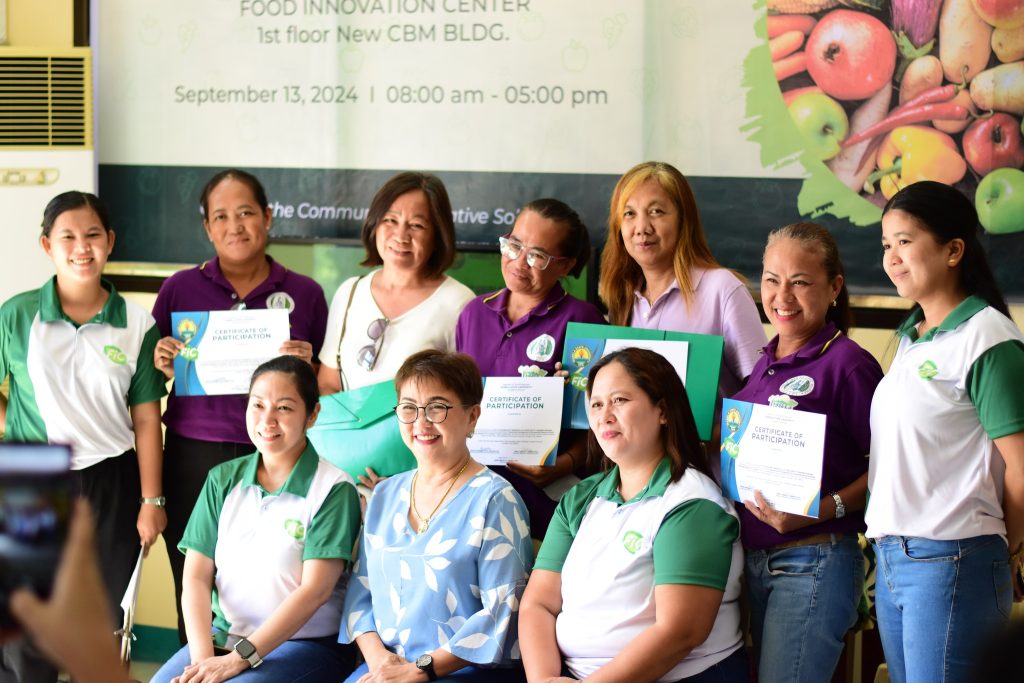



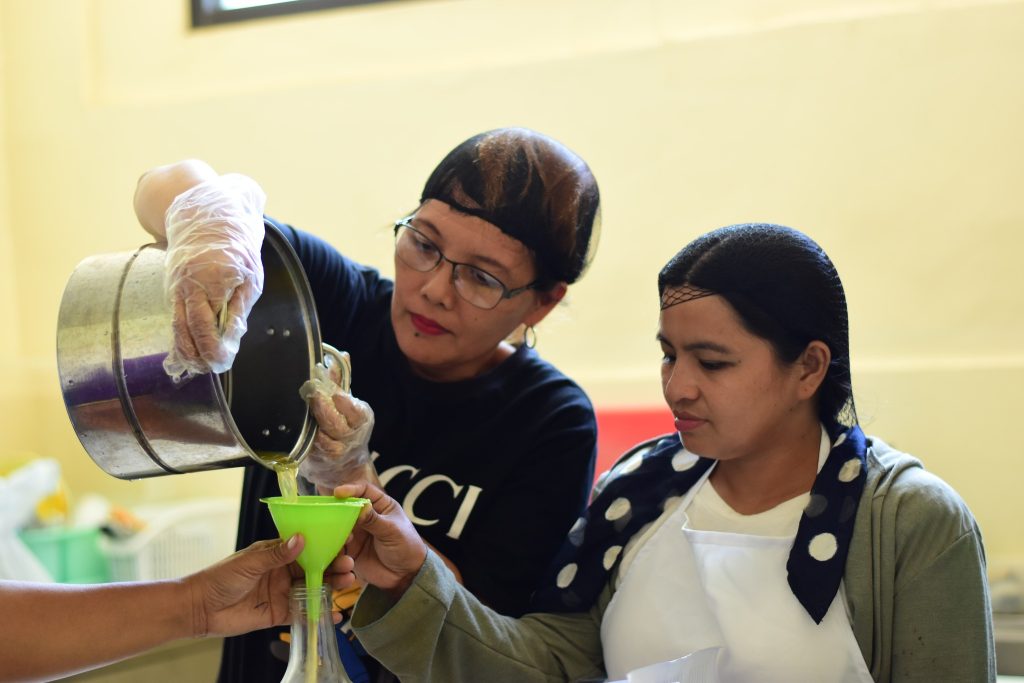
Access to University Facilities for Local Farmers and Food Producers
The Food Innovation Center (FIC) serves as an important part of ISU’s continuing efforts to contribute to Sustainable Development Goal 2: Zero Hunger. It functions as a collaborative space where research, innovation, and community partnerships come together to explore practical solutions to food security and nutrition challenges. As a hub for food research and technology application, the Center supports initiatives that help reduce food waste, improve nutrition, and create opportunities for local livelihood development.
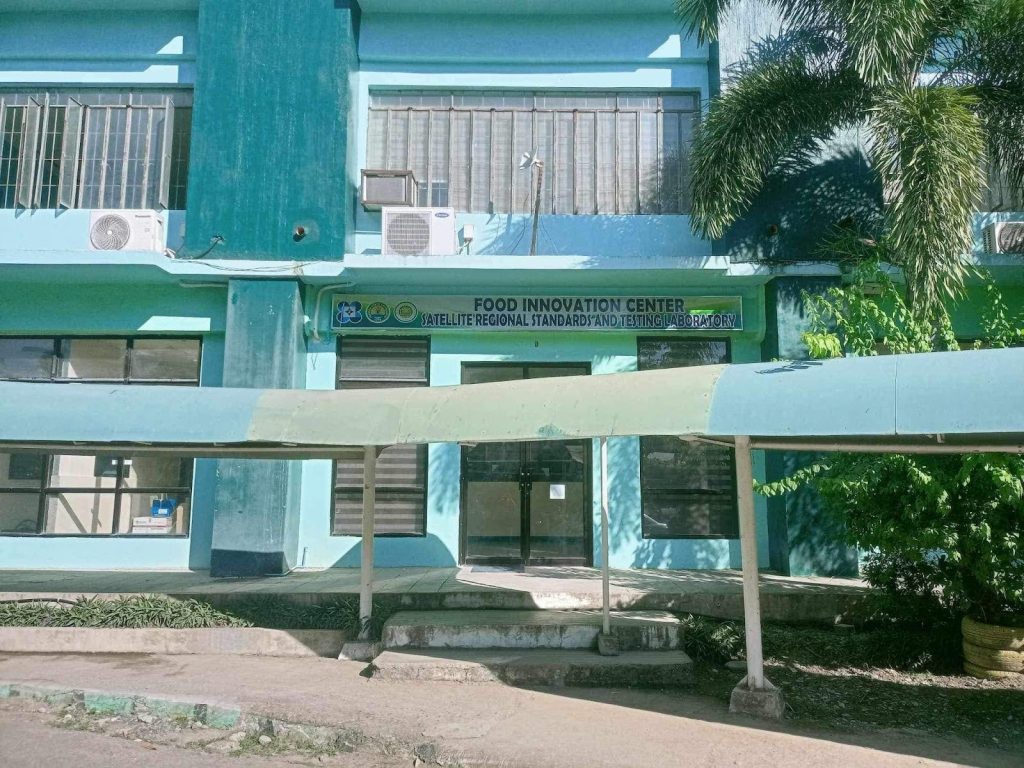
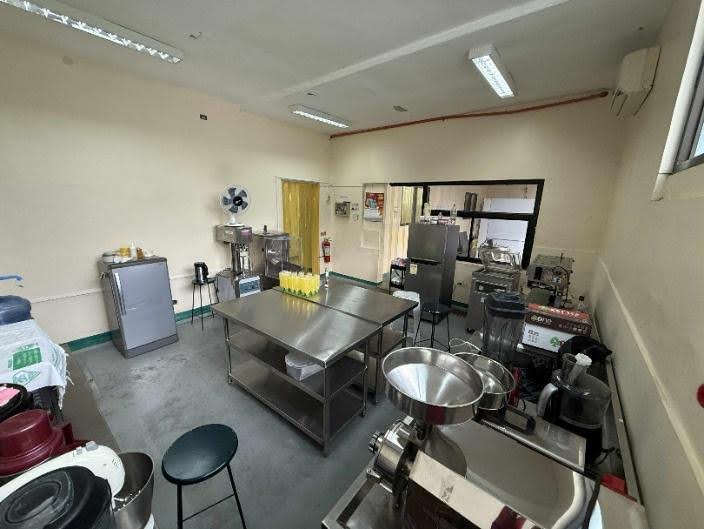

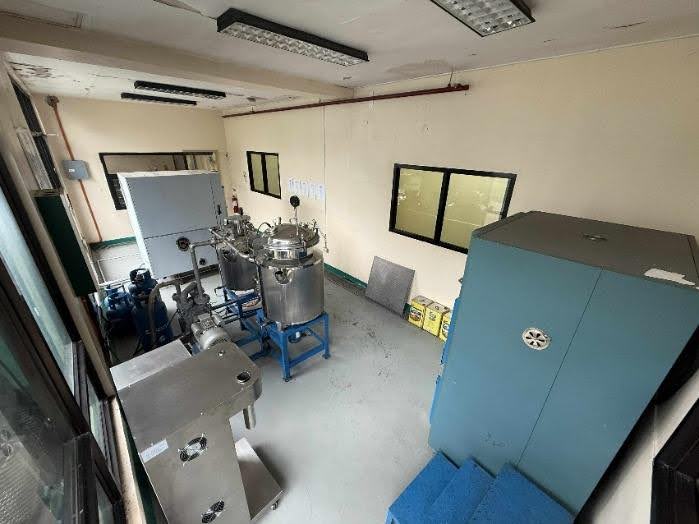
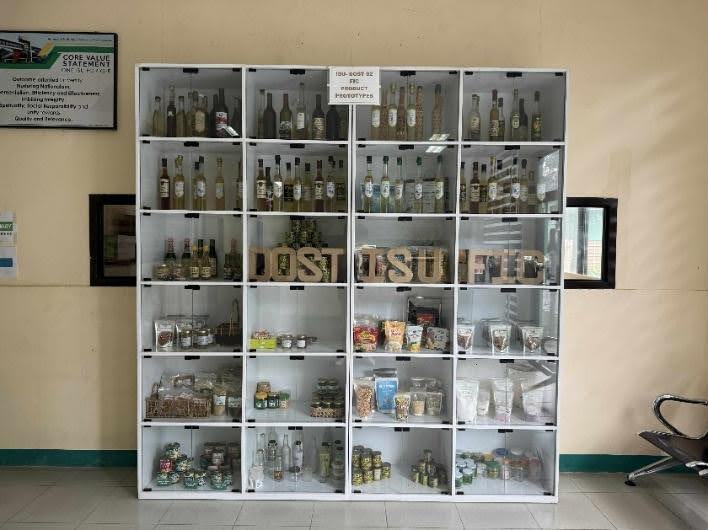
Through its various functions, the FIC provides a platform for students, researchers, farmers, and small-scale entrepreneurs to engage in food product development, safety improvement, and process innovation. Equipped with shared-use processing and packaging facilities, the Center offers opportunities for learning, experimentation, and capacity-building that strengthen both academic and community engagement.
Its programs are organized under three interrelated components:
1. Food Product Development and Value-Added Processing
The Food Innovation Center (FIC) plays a vital role in advancing ISU’s food security initiatives by transforming agricultural surplus and locally produced crops into nutritious, safe, and marketable food products. Through continuous applied research, product development, and technology enhancement, the Center promotes the responsible use of food resources, minimizes postharvest losses, and creates livelihood opportunities for farmers and small-scale processors.
These initiatives exemplify how science and technology can be harnessed to strengthen local food systems—linking innovation with social responsibility and environmental sustainability. By developing value-added food products that utilize locally available ingredients, the Center contributes not only to reducing waste but also to improving nutrition and supporting the broader goal of achieving Zero Hunger.



2. Access to Food Processing Equipment and Facilities
The FIC provides farmers, cooperatives, and local food producers with access to advanced food processing equipment and shared-use facilities. These empower local entrepreneurs to enhance product quality, extend shelf life, and strengthen their market presence. By supporting small producers and MSMEs, the Center contributes directly to rural economic resilience and community-level food sufficiency.



3. Technology Transfer and Innovation Support
The Center also functions as a technology transfer platform, ensuring that research outputs developed by ISU faculty and students reach local communities. Training and mentoring programs equip farmers and small enterprises with practical knowledge in food safety, processing, and packaging, turning laboratory innovations into livelihood opportunities. Through the FIC, ISU reinforces its role as a driver of innovation that supports food security, nutrition improvement, and sustainable production.




Sustainable Food Purchases
The Isabela State University (ISU) Farmers Market at the ISU Echague Campus is a continuing initiative held every Wednesday and Friday that provides a venue for local smallholder farmers to sell their fresh and locally grown products directly to consumers. This program reflects ISU’s social responsibility to uplift the livelihoods of farmers by helping them increase their income, improve their standard of living, and gain access to better economic opportunities. At the same time, it benefits the ISU community and nearby residents by offering affordable, safe, and nutritious agricultural products, strengthening local food systems and promoting sustainable community development.
Beyond serving as a market space, the project also incorporates community-focused initiatives such as food drives that collect donations from ISU employees and stakeholders to support indigent students—reducing both student hunger and food waste. In addition, ISU conducts skills and technology training sessions for farmers and distributes information, education, and communication (IEC) materials to enhance agricultural knowledge and productivity. Through this initiative, ISU effectively bridges education, agriculture, and social development, empowering farmers, supporting students, and fostering a more resilient and inclusive local economy.
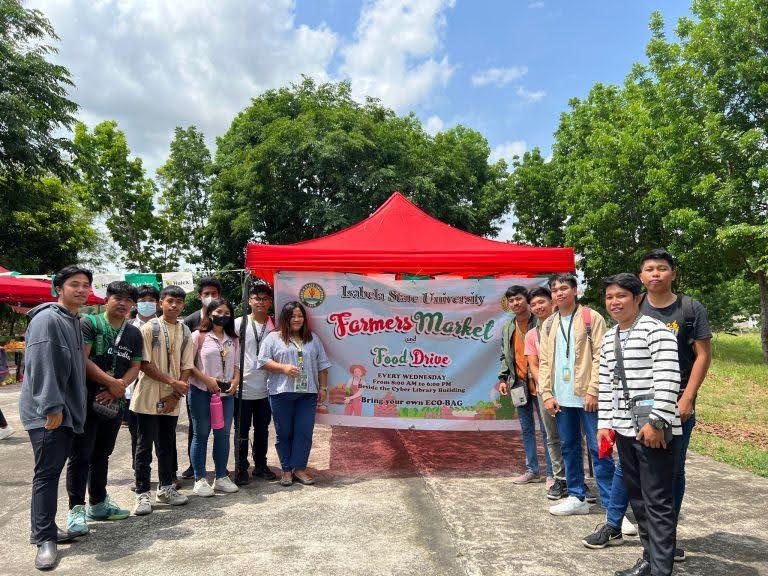
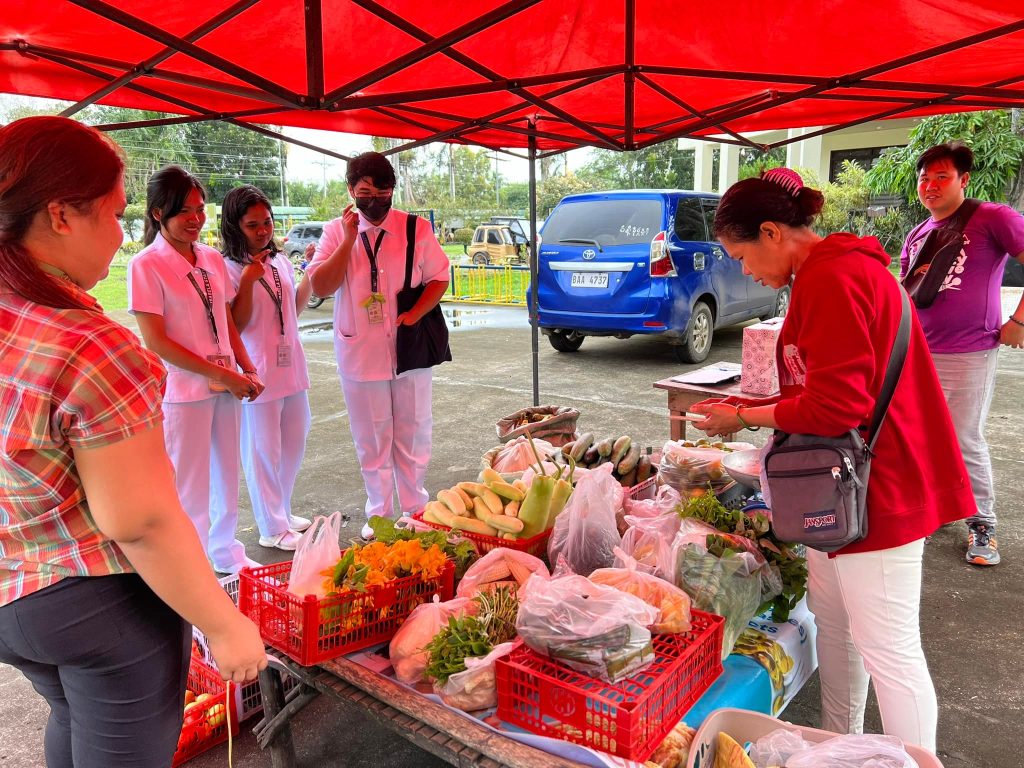
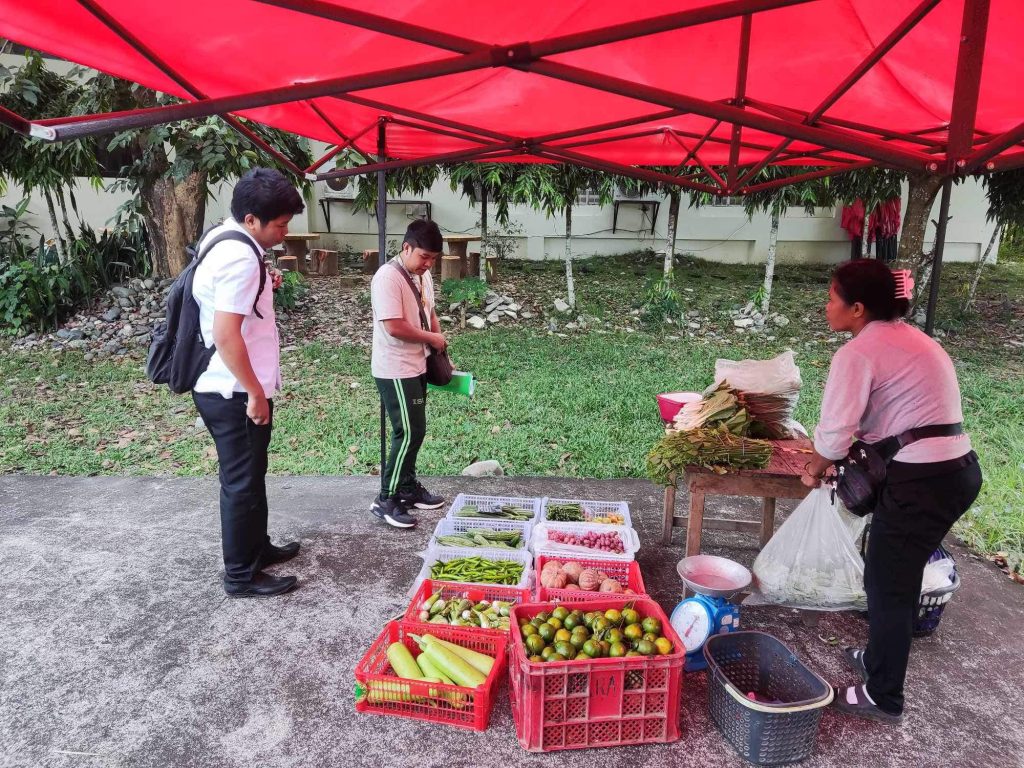
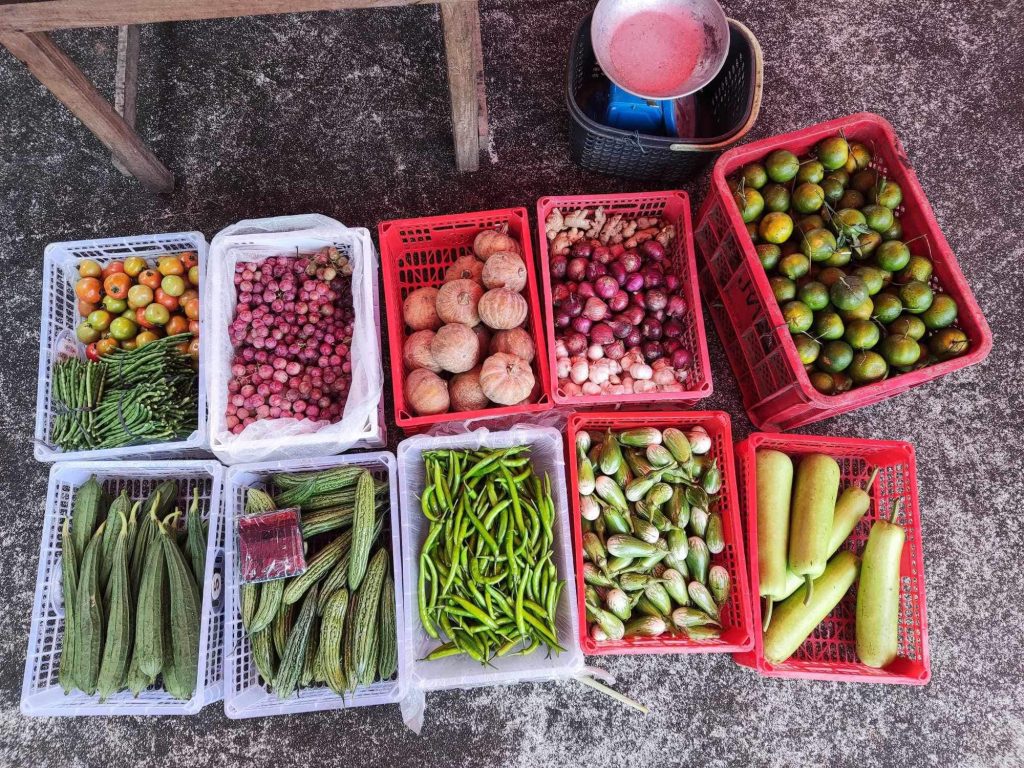
AGRICULTURAL EXTENSION AND COMMUNITY-BASED INITIATIVES
The College of Agriculture of the different campuses of ISU serve as primary arms in extending the University’s mission of education and innovation to farming communities. It plays a vital role in advancing food security and promoting sustainable agricultural practices at the grassroots level. Through the colleges, ISU continuously implements a wide range of training, demonstration, and capacity-building programs designed to enhance farmers’ knowledge and skills in sustainable agriculture, crop management, and food production.
The activities focus on empowering rural producers to adopt more efficient and climate-resilient farming techniques that improve productivity while safeguarding the environment. Farmers, cooperatives, and community organizations benefit from hands-on training and technology demonstrations conducted by ISU’s agricultural experts, researchers, and extension workers.
Key initiatives include:
- Training programs on organic and climate-smart agriculture, promoting environmentally sound and sustainable farming practices;
- Postharvest handling and crop diversification activities, aimed at improving food quality, reducing losses, and increasing farmers’ income;
- Establishment of community gardens and integrated farm systems, which serve as learning sites for food production and household-level nutrition improvement; and
- Partnerships with Local Government Units (LGUs) and national agencies to implement community-based projects focused on food sufficiency, nutrition awareness, and livelihood support.
Through these efforts, ISU ensures that agricultural knowledge and innovations are shared beyond the classroom and research laboratories. The Institute’s continued engagement with farming communities helps strengthen local food systems, increase household food security, and build resilience among rural populations. These initiatives reflect ISU’s enduring commitment to using education, research, and extension as tools for sustainable development and the realization of Zero Hunger.



ADDRESSING FOOD WASTE AND RESPONSIBLE CONSUMPTION
While ISU is still in the early stages of its food waste management program, the University has initiated an institutional research project on campus food waste assessment to establish baseline data and guide future interventions. The ongoing study aims to develop strategies for waste reduction, composting, and food recovery.
These efforts, though in progress, signify ISU’s growing institutional awareness and readiness to address food waste as part of its broader sustainability goals. Once completed, the research will form the basis for a university-wide Food Waste Reduction Program, aligned with both SDG 2 (Zero Hunger) and SDG 12 (Responsible Consumption and Production).
INSTITUTIONAL COMMITMENT AND BROADER IMPACT
Although ISU acknowledges that the full attainment of SDG 2 remains an ongoing journey, the University’s programs and research initiatives mark a clear and determined path toward it. Through its Food Innovation Center, Food Bank, and Feeding Program, affordable canteens, academic programs in agriculture and aquaculture, and agricultural extension efforts, ISU demonstrates that progress toward Zero Hunger is both achievable and measurable.
These initiatives represent more than institutional compliance—they embody the University’s mission to uplift lives through education, research, and service. ISU’s evolving commitment ensures that while challenges remain, the University continues to advance in meaningful and measurable ways toward a hunger-free, sustainable, and inclusive future.


